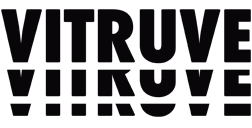8 de November de 2021
We Tell You the Secrets of The Method to Relax and Gain Sleep
When reflecting on how to improve our performance, we take into account factors that involve above all the field of training and nutrition. We look for which methods will allow us to progress in a more efficient way, we investigate until we find articles with a reliable base and get the most out of it, etc. Training and nutrition are two fundamental pillars and that as athletes we have to keep in mind, but if we want not to fall out of the chair, we need the third leg: rest, sometimes forgotten or delegated to the background.
Although if you have come to this article, it can be for two options. Either you want to start giving more importance to that third pillar or on the other hand, you are very aware of the value of rest and you want to optimize it for your more yield in your training or in your day to day.
Whatever the reason, I am sure that if you stay reading you will discover many tips that you did not know yet to improve your rest.
Spend Quality time with your Morpheus friend
And no, I’m not talking about the Matrix character. I am referring to the so-known Greek god of dreams. Sleep is probably the most basic and important form of passive recovery that the athlete can adopt, but it is not worth sleeping in any way or at any time, it is necessary to spend quality time.
Humans have an internal biological clock that stimulates certain hormones during the course of the day and usually responds to daylight and what we do during our day to day. This internal clock is located in a region of the brain called the hypothalamus. Thanks to it, during the day, with sunlight, the pineal gland suspends the production of melatonin, also known as the sleep hormone. At dark, melatonin levels increase.
There is high scientific evidence of the multiple benefits that exist for recovery in the sports field to take a good night’s rest. Athletes, due to their high energy demand, must understand the importance of adequate rest in performance, recovery and competition. In adults, the recommendations range from 7 to 9 hours of sleep per night, which can compromise health, well-being and performance if these are decreased (Hirshkowitz et al., 2015). A greater need for sleep has been suggested in athletes to allow adequate recovery and adaptation between exercise sessions, establishing this between 9-10 hours of sleep (Bird, 2013)

But how can I sleep better? This is one of the doubts that arise very commonly in those people who want to improve their rest, but do not know where to start. There are quite a few factors that can negatively affect sleep, so it is important that you keep these considerations in mind:
- Avoid screens at night: Using electronic devices before bed has been associated with poorer sleep quality, sleep loss, and increased daytime fatigue. It has been seen that the emission of blue light, such as that emitted by mobile devices, can interfere with circadian rhythms and reduce melatonin production by up to 22% in 2h, which increases alertness and disturbs sleep (Exelmans & Van den Bulck, 2016). The effect can be greater when combined with the use of social networks, increasing the state of stimulation and emotional arousal.
- Psychosocial stress: in our day to day, we are subjected to a large number of stimuli and situations that, sometimes, can reach very high degrees of stress and anxiety. Knowing how to control these situations is essential, not only to ensure that it does not negatively influence our sleep, but also to achieve a better quality of life. Reflect on what your main daily concerns are and where they originate, reframe your problems, or try to come to terms with the situation if there’s something you can’t change.
- The intake of stimulants: The consumption of stimulant substances such as, for example, caffeine, taken from certain hours, especially in responding subjects, can interfere with sleep due to its central action on adenosia receptors, increasing the waking state. If we do not want this to interfere with the quality of our rest, we must try to limit caffeine consumption by giving a margin of at least 6 hours between the last intake and the time to fall asleep.
Trying to control and avoid these factors that can affect the quality of our sleep, we can also and should also opt for strategies such as:
- Acquire a routine and a regular schedule when going to bed and waking up, thus favoring the accommodation of our internal clock.
- Control the environment where you rest. The room should be a cool, silent and dark place, thus avoiding possible interruptions in our rest. Try to keep the room at a temperature that induces sleep, below 21ºC.
- Exposure to sunlight during the day. Sunlight (10,000 lux) not only helps us sleep better, it also influences numerous physiological variables, for example, it stimulates the production of serotonin in the hypothalamus, improving our sense of well-being.
Undoubtedly, sleep is considered the best recovery strategy, therefore, acquiring a regular schedule when going to bed and waking up, taking naps of 20-30 minutes or melatonin supplementation on certain occasions, which we will talk about in more depth later, can be very beneficialand probably impacting on the performance and health of the athlete.

Stretches
With the stress of the day to day our muscles spend many hours in static and contracted positions, which causes in the long run that the muscle shortens, increases the pressure in the joint and causes the loss of mobility of the same. This, accompanied by the mental overwhelm of our personal life, can cause our stress level to increase even more and therefore increase cortisol, known as the stress hormone.
Stretching is something spontaneous and natural that our body demands when it feels too rigid. The muscle contracts due to the accumulation of toxins that hinder circulation. Stopping for a moment to stretch will allow us to clear our minds, relax and recover normal muscle tone.
Stretching has numerous benefits such as promoting the feeling of pleasure and well-being, increasing physical and mental relaxation, reducing muscle tension, favoring the production of endorphins and a long etcetera. But how do I stretch to get these benefits?
There are different types of stretches, but without a doubt the simplest to perform and in which less energy we will spend, will be static stretching. The stretch should be painless, maintaining control of the movement at all times and try to mobilize all the joints. You can start by mobilizing the joints from the neck to the ankles through the shoulders, elbows, wrists, hip, knees and ankles.
After mobilizing the named joints, we will move on to stretching. These will depend on the mobility of each one, but we will try to make painless and controlled gestures. Here are a number of example exercises:

Meditation
Meditation is an ancient technique, but in the pragmatic culture of the West it has been rejected on numerous occasions, largely because of ignorance about it. However, in recent decades science has been interested in the benefits of meditation.
In addition to its relaxing role in favoring rest, there are certain studies, such as that of David S Black et al., which concludes that with the use of an intervention based on meditation(standardized mindfulness practices) it led to improvements in sleep quality in the immediate post-intervention. Formal mindfulness-based interventions are clinically important as they possibly serve to remedy sleep problems among older adults in the short term, and this effect appears to carry over to the reduction of sleep-related diurnal impairment that has implications for the quality of rest.
Undoubtedly, it is not something simple by any means, especially the first sessions, but if you are able to persist, it can change your way of understanding your own thoughts and achieve a better sleep. You can start with guided sessions.

Supplementation
There are some supplements that can help you fall asleep which, as we have seen before, is essential to our recovery process. Before resorting to any type of supplement, we recommend that you try to improve your sleep quality by modifying your habits and daily routines so that your rest does not depend on supplementation.
- Infusions: it is the most conventional option and can be taken daily. They can help you sleep better with faster sleep induction.
- Magnesium: has a calming effect on the nervous system, and multiple studies show its effectiveness in combating insomnia and facilitating sleep. Its recommended intake is 200-400mg a couple of hours before bedtime.
- Melatonin: also known as the sleep hormone. This is a hormone that our body produces naturally and that rises at night to indicate to the body that it is time to sleep, but sometimes due to external factors as we have talked about above, they can alter its appearance in the body, reducing its production. You can start with 1mg for a few days, if the problem persists, use doses of 3-5mg, but do not make it a habit since after all it is a hormone and there are doubts about the effects in a prolonged way.
- Vitamin D: If you have little sun exposure and have trouble sleeping, you may have vitamin D deficiencies. This deficiency represents the first most frequent nutritional deficiency in developed countries and is associated with insomnia. You can start with a dose of 1000IU a day.
Bibliography
- Kelley, G. A., & Kelley, K. S. (2017). Exercise and sleep: a systematic review of previous meta-analyses. Journal of evidence-based medicine, 10(1), 26–36. https://doi.org/10.1111/jebm.12236
- M. Mendelson, A. Borowik, A.-S. Michallet et al., “Sleep quality, sleep duration and physical activity in obese adolescents: effects of exercise training,” Pediatric Obesity, vol. 11, no. 1, pp. 26–32, 2016.
- Dolezal, B. A., Neufeld, E. V., Boland, D. M., Martin, J. L., & Cooper, C. B. (2017). Interrelationship between Sleep and Exercise: A Systematic Review. Advances in preventive medicine, 2017, 1364387. https://doi.org/10.1155/2017/1364387
- Fernando Mata-Ordoñez1, Pedro Carrera Bastos2, Raúl Domínguez3, Antonio Jesús Sánchez-Oliver4; Importance of sleep in the performance and health of the athlete
- Angela Calder – Recovery Strategies for Sports Performance
- PAYNE, R (1996): Relaxation techniques. Paidotribo. Barcelona
- David S Black 1 , Gillian A O’Reilly 1 , Richard Olmstead 2 , Elizabeth C Breen 2 , Michael R Irwin 2 ; Mindfulness meditation and improvement in sleep quality and daytime impairment among older adults with sleep disturbances: a randomized clinical trial

